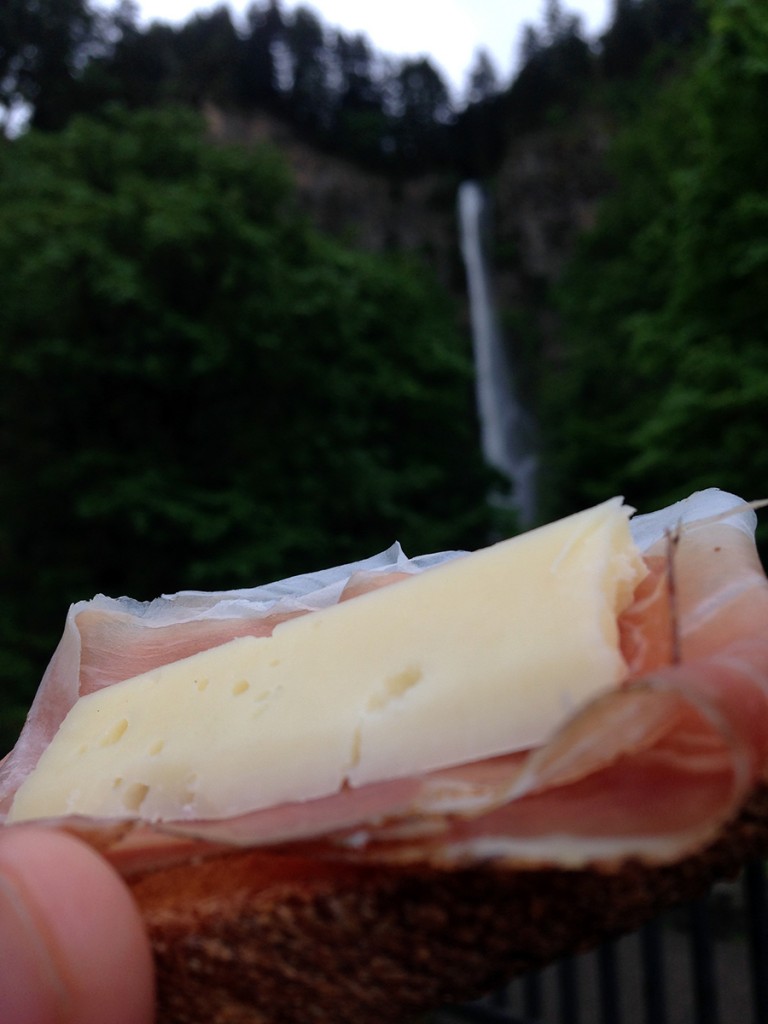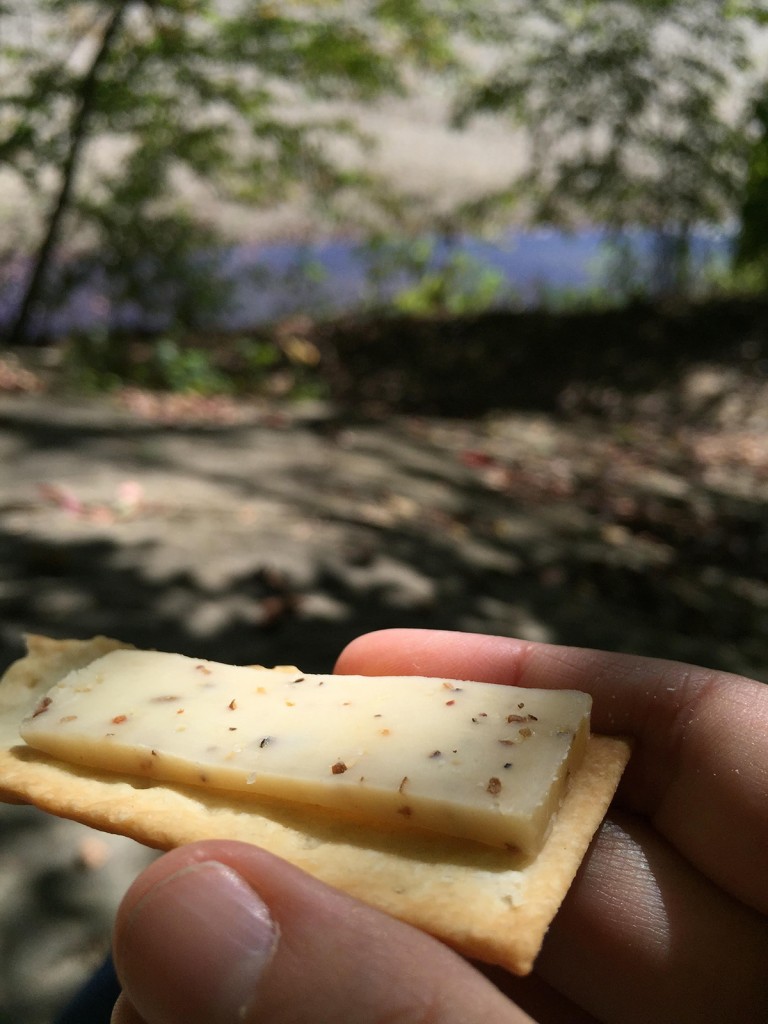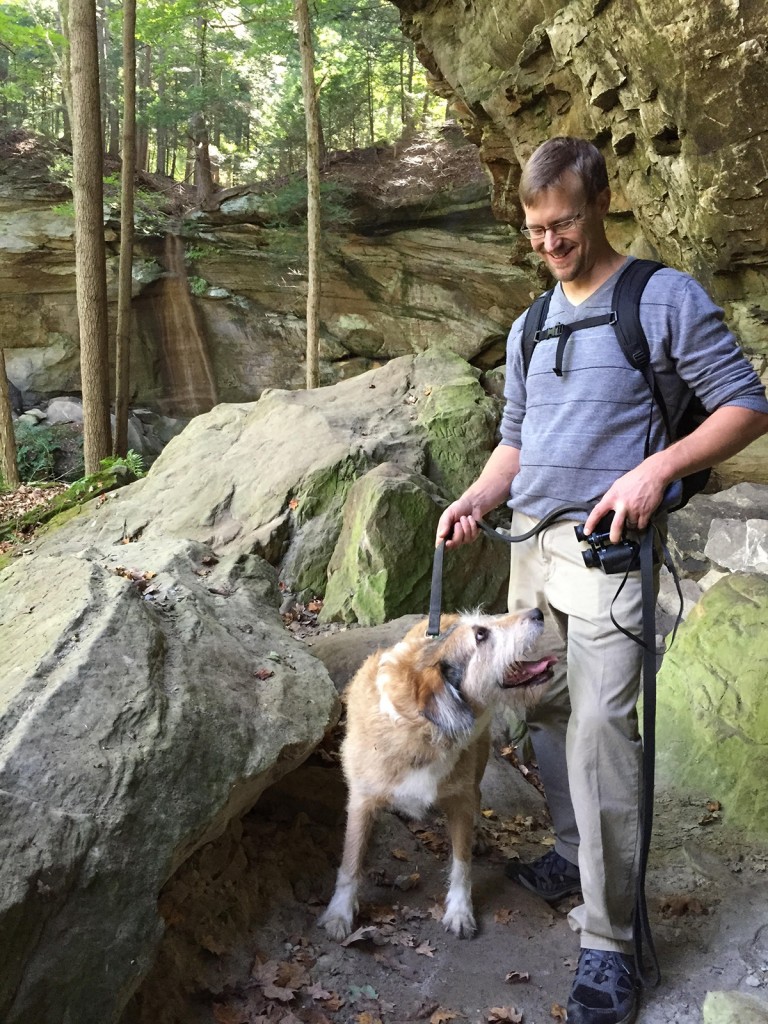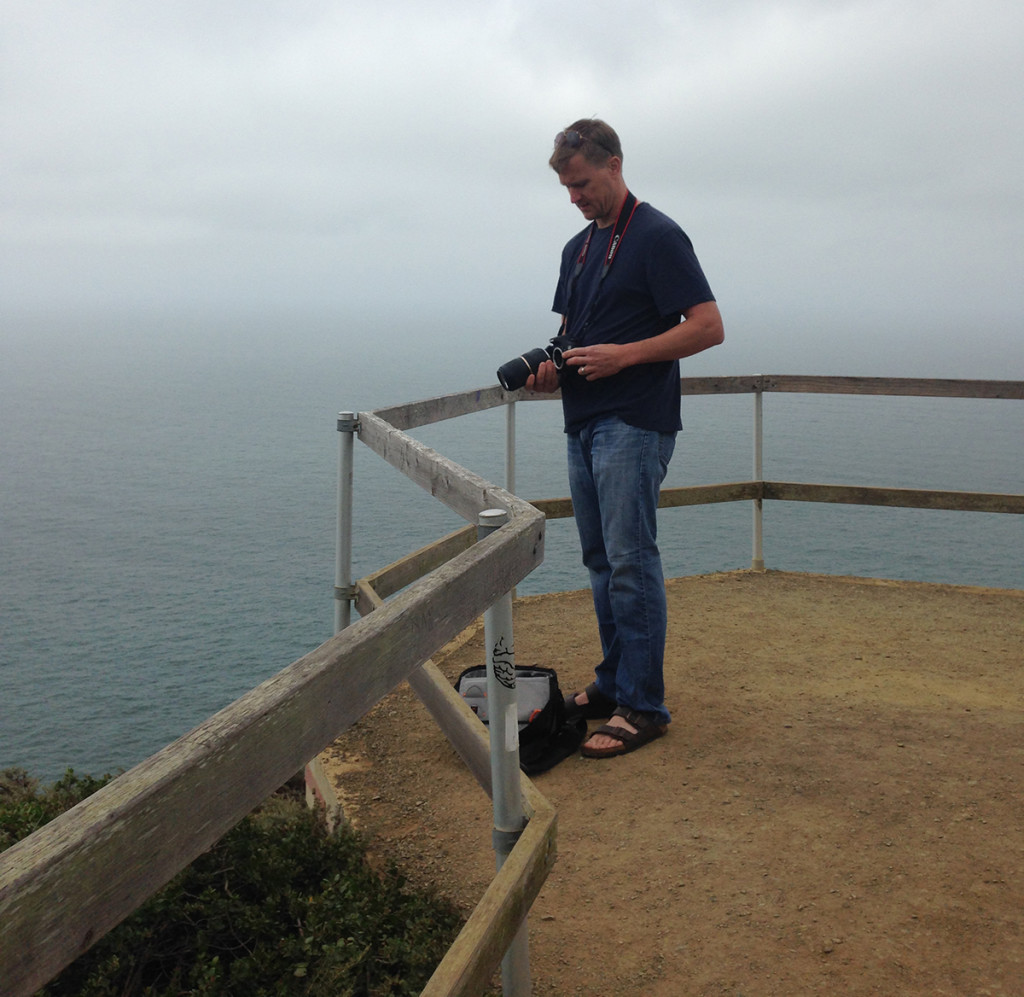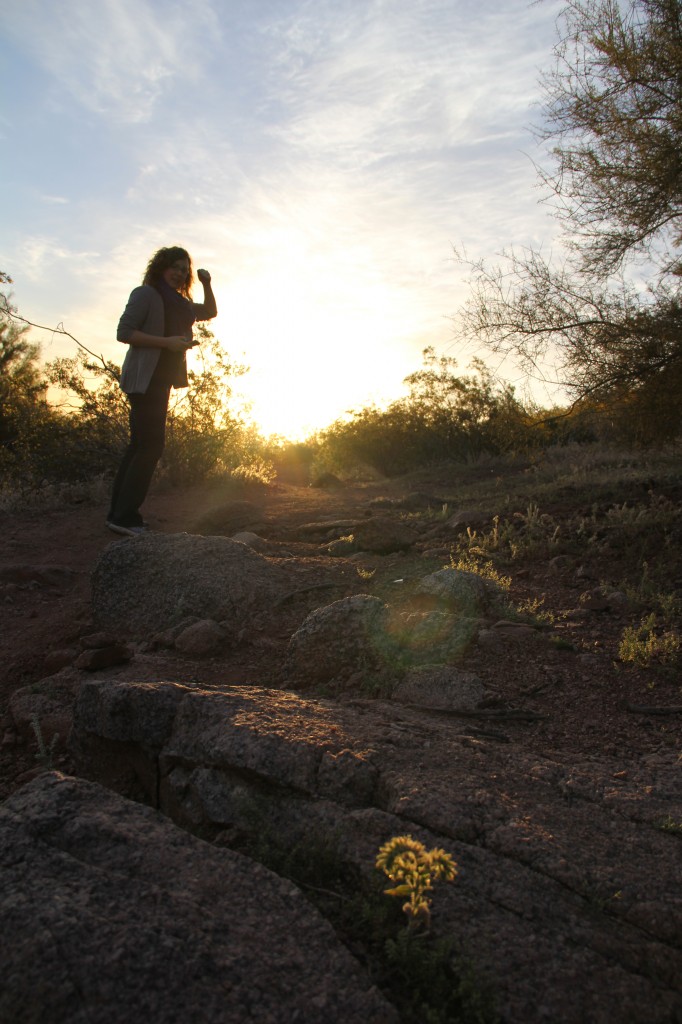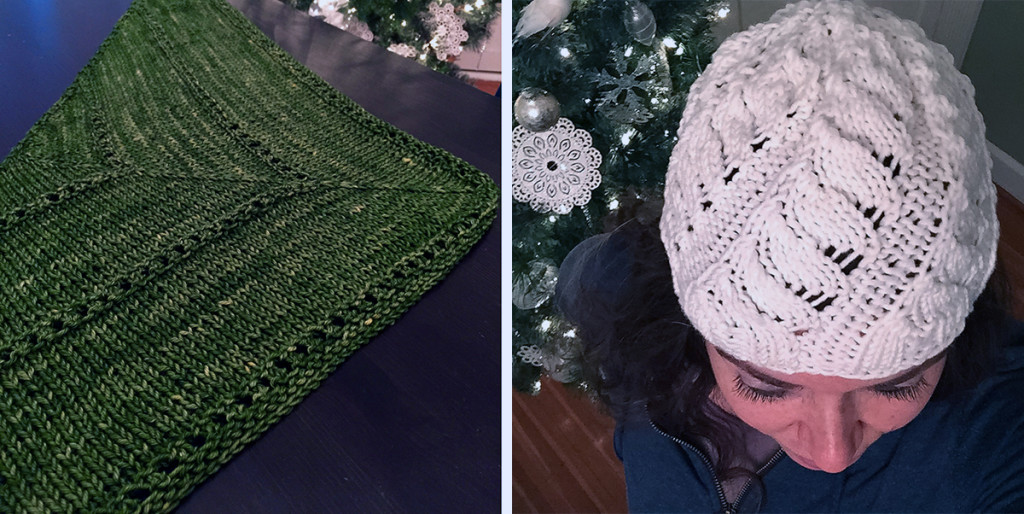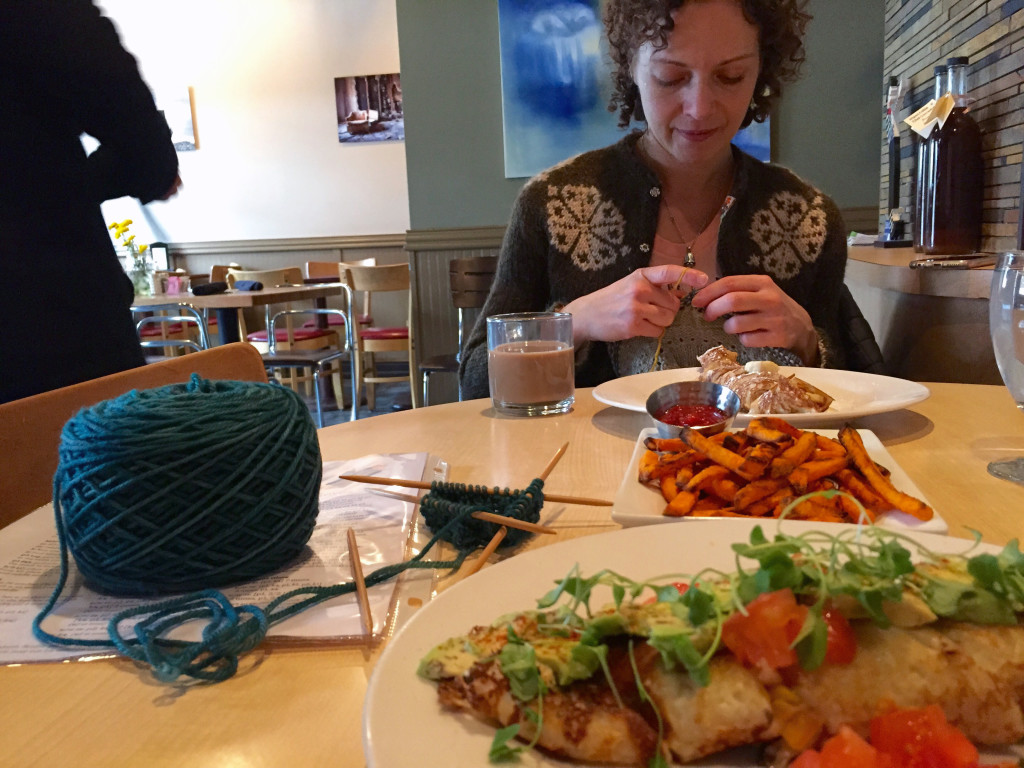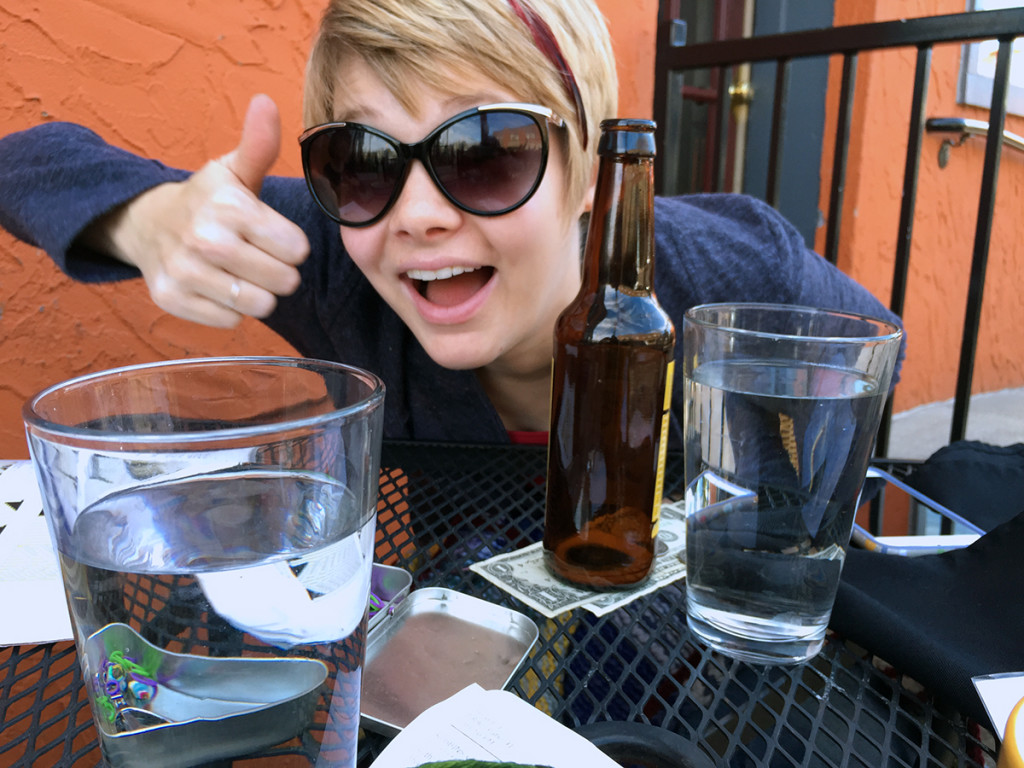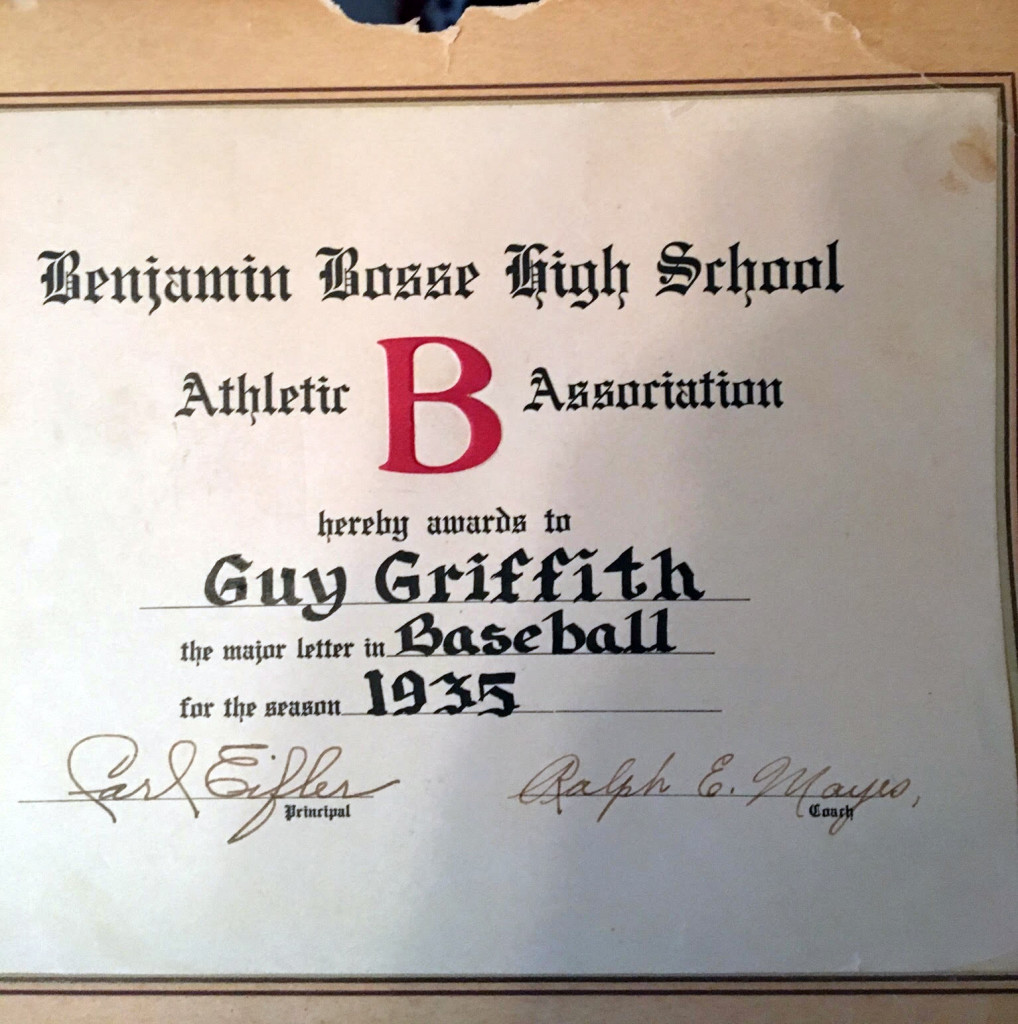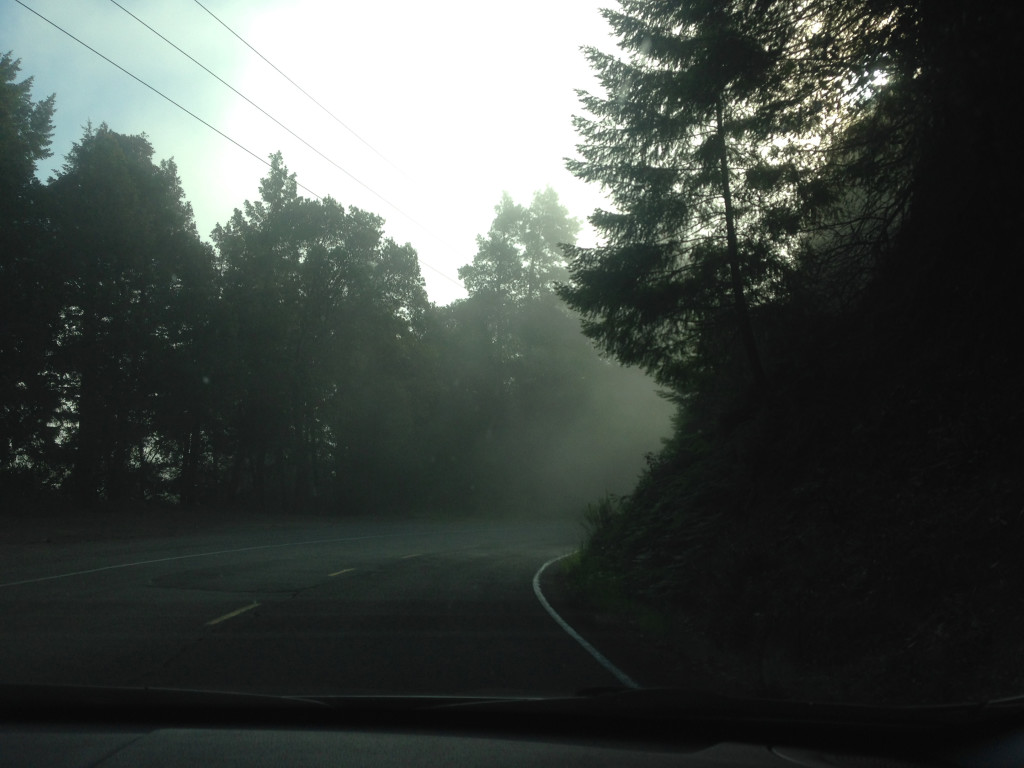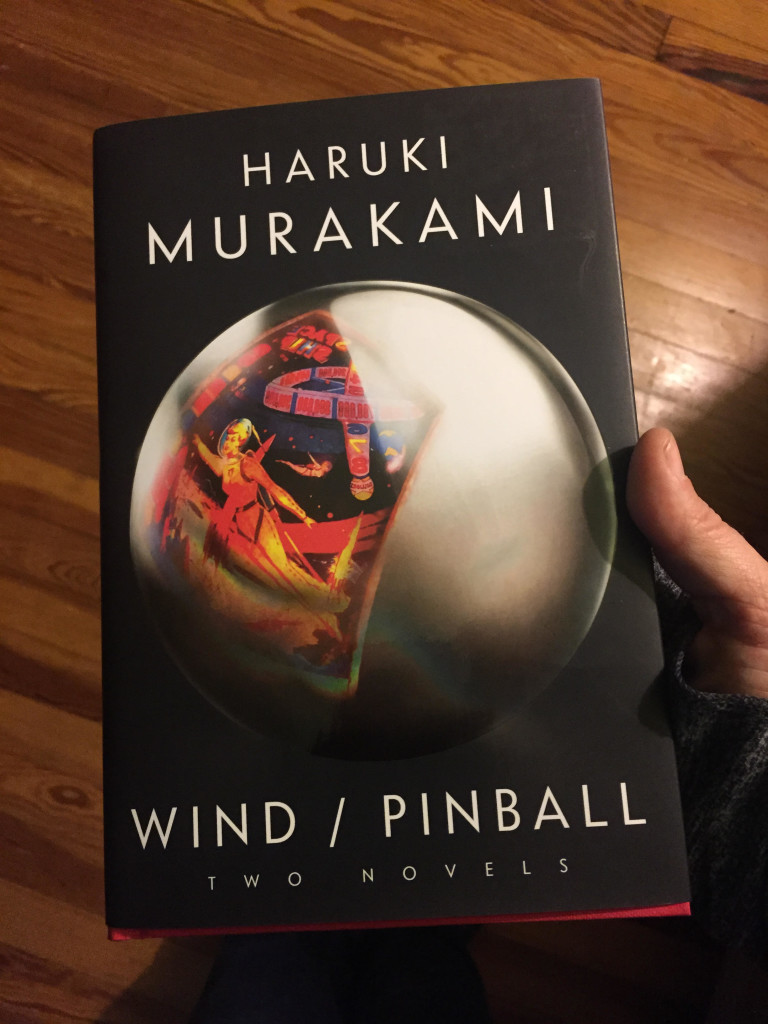I’ve had a mental block on alternate paths for this post. This morning when I read the prompt, I got a pit in my stomach, overpowered by the smell that is no longer there. It was the kind of smell that’s meant to be nice, but went all wrong – like popcorn burnt in the microwave, or the sickly sweet crystals the janitor sprinkled over vomit in grade school.
When our twelve-year-old husky shepherd mix Schnitzel got sick this spring, we had no idea how fast it would come. At first, he just had a simple sore on his mouth. When it didn’t heal, our vet treated him for a bacterial infection. Just to be safe, she ran blood tests and basics, and we’d gotten the all clear.
Three quarters through his antibiotic regiment, we realized it simply wasn’t working. The vet could do no more but send us to a doggie dermatologist. Did you know those exist? The specialist ordered a biopsy, but gave a grim likely diagnosis of a type of skin lymphoma, something that started with an E – one of those long, terrible words that are hard to remember, and harder to pronounce. The biopsy came back with bad news. It was indeed the skin cancer she had suspected. There wasn’t much they could do.
By the time we got the official diagnosis, the sores had popped up all over, on his legs, his belly and sides. Aside from on his snout, they looked more like dandruff. His hair came out in tiny clumps, dried-out flakes of skin on the end. The sores near his mouth and nose were worse – a blotchy, raw flesh. He chronically licked at them, like he might be able to get them off with just one more swipe of the tongue.
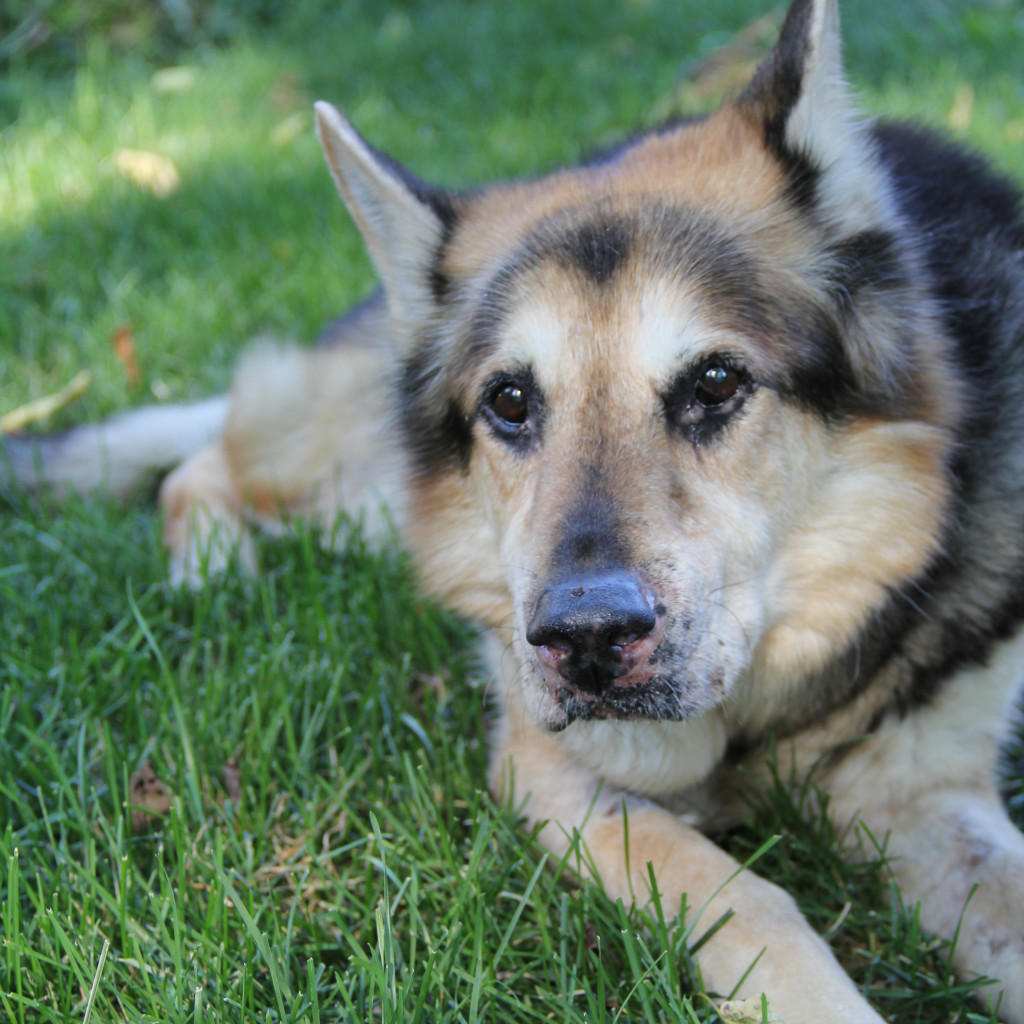
We’d been told he might live another 6-8 months. There was a chance we’d have one more Christmas with him. I had hoped he’s see one last deep snow – his favorite. But once it arrived, the cancer was like a freight train that wrecked through his body and he was gone in the heat of summer.
In the final weeks, his weight plummeted until we began to see his ribs and spine. We noticed a sad sign near the very end – I hadn’t known this happened to dogs who are very ill – he stopped wagging his tail.
And he was throwing up, a couple of times a day in the last days, mostly a putrid yellow bile. We bought an antibacterial spray for the frequent clean ups. It was supposed to smell like wildflower. But it didn’t. It was bad on its own, but it came to smell to us like cancer. Not that I really know what cancer smells like, but we couldn’t handle it. It wasn’t the vomit that bothered us, but the biting saccharine not-at-all-wildflower. The moment he was gone, we had to get rid of the bottle.
I’ll never forget the day I came home and he collapsed on the floor coming to greet me. He would never again stand up on his own. I too fell. All I could do was lay beside him on the kitchen floor. I knew we’d have to go to the vet that next morning. That it would be all over. Schnitzel spared us needing to make this decision by going on his own that night at home.
I was right there with him. I hadn’t wanted him to be alone. It is tough to bear witness to those final moments of a life. The look in his eyes seemed searching, pained. His labored breath slowed to gasps, then a final quiver, and he was gone.
I have not wanted to write about this. When it came time to let our friends and family know about his passing, I asked Louie to compose the message. As a writer, it seemed I should honor him in some public way, but paying tribute to such a noble and loving companion escapes me as much now as it did then.
As my parents have said, he was a once in a lifetime dog. We gave Schnitzel all sorts of nick names and accolades. Schneedie. Schnoodle. Strudel. Old Man Schneetz. His crowning achievements were Best in Show and Nobel Puppy Prize Winner. He carried himself with a regal prance, a bit like a horse. We often joked on walks with him that he was winning the Preakness.
Even at twelve-weeks-old when we adopted him from the Chicago city pound, it was like he had his shit together. More so than us, the stereotypical post-college drifting twenty-somethings. Through moves, job changes, tough times, he was there, tethering our little family together, while we tried to figure it all out. When we brought home 11-month-old Brüski and disrupted what zen we’d found in our house, he accepted the full on puppy assault like a champ.
Months after he died, I saw a squirrel get hit by car while I was out for a run. In the middle of the road, it kicked its legs in a few last spasms. Seeing its last moments of life looked too familiar, and I lost it mid-stride. I have moments like this, where the grief comes in like the tide, washing over me once again. I’ve come to understand this will always be with me.
This post is part of Think Kit by SmallBox
Prompt: “Scratch & Sniff! Scents have the power to take us all kinds of places. What smell takes you somewhere else? Where’d you go?”
